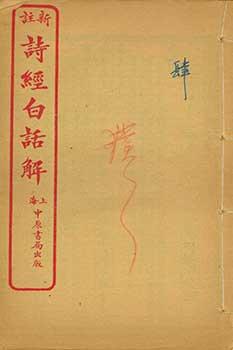

The poem expressed his broad mind of desiring more talented people.

It is said that Cao Cao composed this poem at a banquet held on a big ship at the northern bank of the Changjiang River, before a decisive battle with the Kingdom of Wu. I shall act like Duke Zhou who nursed talents, They sometimes fly around a tree three times,Ĭan not decide to rest on which branches. The moon is bright, yet stars are sparse, We are talking so heartily at this banquet, The deer call to one another with beautiful sound,įor them drums, string and pipe instruments are played. Though my generosity goes along with chivalry, When raise a cup of wine, one should sing,ĭay after day its evaporation can not even be slow. He also wrote songs to express his political ideals and his willingness to open all avenues for people of talent, for instance in 《短歌行, Duan Ge Xing, A Short Songs》: The poet was 53 when he wrote this poem, which stated truly his positive and enterprising spirit. Since my mind is in such a state of elevation,
#XIAO SHI BAI YU PAN POEM HOW TO#
If one knows how to keep himself healthy and happy, The old horse is feeding itself by the manger, Another poem in this part is 《龟虽寿, Gui Sui Shou, Though the Long Life of Turtle》 which read: What we find in it is magnitude, vigor, power and grandeur, which illustrate the broad mind of the poet. Yet, no sadness can be detested from this poem. Ever since Song Yu, all poems about autumn carry a sad tone. Cao Cao wrote it in September of the 12th year of “Jian An” period after he returned from a successful battle. This poem can be regarded as the earliest landscape poem of China. I compose this song to voice my aspiration.Ĭao Cao devoted the whole poem to natural scenery. Seemed to be born from the inside of the waves.

Hills and islands raise from it straight. His 《步出夏门行, Bu Chu Xia Men Xing, Exit from Xia Men》 is consisted of several parts, among them the following two are most well known:Ĭoming to the ease, I climbed up Mountain Jieshi, No cock’s crow can be heard in a thousand li, Their white bones are exposed in the wilds, Louses and their eggs are found in the armors, In the latter, his sympathetic pen recorded the sufferings of the people in war: They were all written in the form of 《Yue Fu Poems》, for instance 《薤露行, Xie Lu Xing, The Dew of Grass》 and 《蒿里行, Hao Li Xing, The Wormwoods》 were all titles in 《Yue Fu Poems》, but Cao Cao used them to write about current events of the time. There are only less than 20 poems of Cao Cao in existence today. He became the Prime Minister of Wei in 209, in 214 was knighted the Duke of Wei, in 217 became the King of Wei and was conferred the title Emperor Wu of Wei posthumously. 曹操 (Cao Cao, 155-220) was a statesman, master of military affairs and a great poet. They not only carried on the tradition of “Yue Fu”-“touched by sadness or happiness and inspired by events”, but also laid a solid foundation for “Wu Yan” poetry. Besides three Caos, seven scholars (often referred to as seven sons) were also famous. During this period, Cao Cao was the Prime Minister of Wei he and his two sons were leaders in the world of letters at the time. Jian An was the title of the reign of Emperor Xian of Han. We refer to this period in the Chinese history of literature as the “Jian An (建安) Era”. It was formalized at the turn of the second century to the third century. Wu Yan poetry was evolved from “Yue Fu” poetry. Wu Yan (五言) poetry, means five-character a lone poems. Wei was a kingdom during the Three-Kingdom period (220-280), we only mention Wei, because it was more outstanding in poetry than Shu and Wu Kingdoms. All later poets who criticized political darkness and reflected the sufferings of people had absorbed nutrition from 《Yue Fu Poems》 and pushed forward the development of Chinese literature. There was a “New Yue Fu Campaign” in the Tang Dynasty headed by Bai Juyi. Outstanding poets of Wei used the titles in the 《Yue Fu Poems》 of Han. Form evolved from the poems of 《Yue Fu Poems》.


 0 kommentar(er)
0 kommentar(er)
